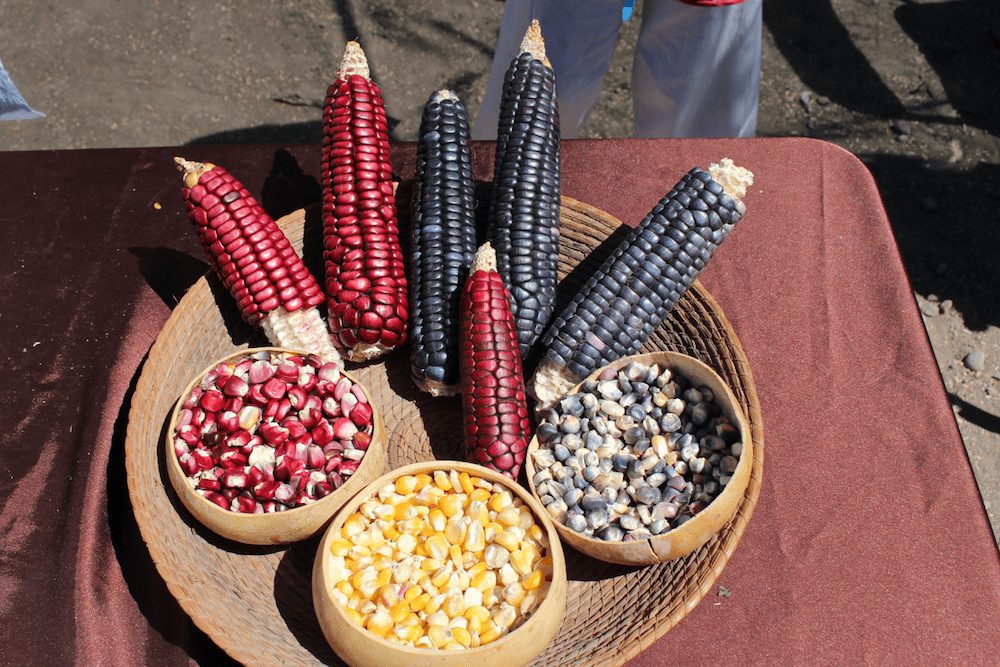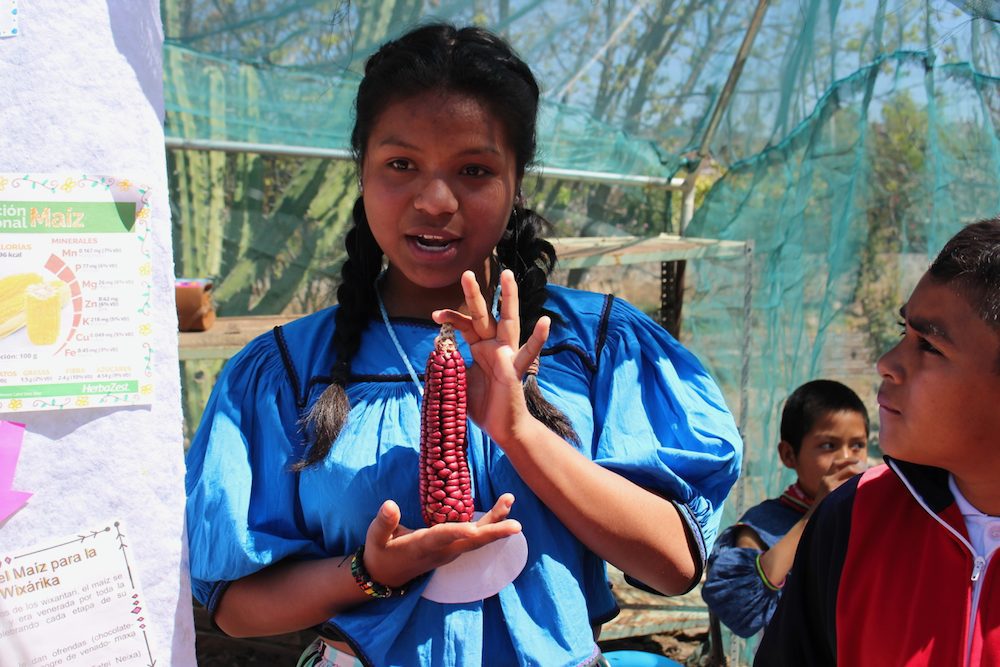Three of the greatest battles that humanity is fighting are:
- The Covid-19 pandemic;
- The climate crisis, which increasingly threatens the survival of the species; and
- Gigantic areas of GM soy, corn, cotton and glyphosate, the poison that accompanies them, planted in blood and fire by six powerful agri-food corporations.
To give the reader an idea, here is what’s known about the biggest project of death:
Crops and glyphosate spread over about 192 million hectares, a space the size of Mexico, headed by gargantuan areas in the United States, Brazil, Argentina, Canada and India.
Between 1974 and 2014, 8.6 billion kilograms of glyphosate were sprayed around the world. As has been repeated ad nauseam (see my Ode to Glyphosate, May 19, 2020), glyphosate is a chemical poison invented in 1970. It kills plants (herbs and shrubs), that is, it is an herbicide, better known as Roundup, produced by Bayer/Monsanto. In 2015, the World Health Organization (WHO) declared glyphosate a possible carcinogen for humans, and the fifth edition of the Toxicological Anthology of Glyphosate, by E. Martín Rossi (2020), offers a list of 1,110 scientific articles that attest to the harmful effects of the pesticide! For this reason, glyphosate has been banned or restricted in countless countries (principally in Europe).
Para leer este artículo en Español, hacer click AQUÍ

In Mexico, under the aegis of neoliberal governments, Monsanto had the unconditional support of the Secretariat of Agriculture and of SEMARNAT [Secretariat of the Environment and Natural Resources], the Mexican Academy of Sciences, the National College, the rectory of UNAM [National Autonomous University of Mexico], and dozens of biotechnologists headed by Francisco Bolívar Zapata, editor and author of a disgraceful book in favor of transgenics [GM crops, e.g. soy, corn, cotton]. Confronting them were the 53 citizens and 20 peasant organizations that legally managed to stop the entry of GM corn into Mexico.
It should be understood that such a powerful company (Bayer/Monsanto had revenues of $51 billion) has an army of scientists, technicians, publicists, sales agents, lobbyists, spies and promoters, and in each country they develop very effective campaigns of cooptation of researchers, academies, companies, producers, journalists, legislators and governments. This explains its dominance over 24 countries, including the so-called progressive governments of Brazil, Argentina and even Bolivia. It should also be mentioned that these companies work with medium and large agricultural producers (latifundistas), not with the small peasant and indigenous producers who are the majority.

Last December 31 in Mexico, after a fierce battle, the government of the 4T* issued a presidential decree for the gradual withdrawal of glyphosate and the prohibition of GM corn. To pull off this achievement, the SEMARNAT had to deal with various attacks, such as a letter from the United States Undersecretary of Agriculture, a meeting with a dozen ambassadors who demanded not moving forward, the arrival of some 40 letters from agricultural organizations — all subsidiaries of the National Agricultural Council (CNA) — in the Center and North of the country with the same demand. Perhaps most importantly: the determined and obstinate opposition within the cabinet of three officials: Alfonso Romo (Presidency), Víctor Villalobos (SADER, Secretariat of Agriculture and Rural Development) and Julio Scherer (Ministry of the Presidency). On two occasions, these officials, in full contempt and by dint of dishonest actions, produced spurious decrees, which fortunately, were ultimately stopped.
The National Agricultural Council, or CNA, unites the country’s agricultural bourgeoisie and was widely favored ($) by neoliberal governments. Last week, the CNA’s new president, Juan Cortina Gallardo, released a pair of documents that circulated widely and even went viral. In these documents, Cortina Gallardo launched a call to start an aggressive campaign to overturn the presidential decree and requested support for a total of 12 million pesos [US$584,000]. The campaign includes legal (a cascade of amparos**), international and communications actions for which specialized firms have been hired.
Today, in this “war against glyphosate,” Mexican men and women throughout the country must close ranks and defend this achievement by all possible means. It is an accomplishment that contributes to a healthy diet and well-being, as well as the health of the environment and the rest of the world’s living beings. The presidential decree joined other actions such as the Law for the Protection of Native Maize, the new Maize Museum in Chapultepec, the labeling of prepared foods, and various agroecological programs, all within the framework of food sovereignty. Let’s stop this new onslaught of suicide bombers on the planet!
+ + +
Translated by Jane Brundage
Translator’s Notes:
*The 4T or Fourth Transformation | Mexico President Andrés Manuel López Obrador [aka AMLO] refers to his election as the Fourth Transformation of Mexico, preceded by the War for Independence from Spain (1810-1821); the Reform Period led by President Benito Juárez (1857-72, interrupted by two civil wars); and the Mexican Revolution (1910-1917); hence, the 4T government. See also Mexico | Pandemic, Science and Politics: A Defense of the ‘4T’, Victor M. Toledo, La Jornada, May 21, 2020.
** “Amparo“, literally “protection,” is a legal right granted in the Mexican Constitution to individuals and corporations that they may appeal to successively higher courts for an order of protection against an action by any level of government believed to be violating their rights. The amparo is roughly comparable in U.S. law to an injunction used to block a government action.
This piece by research scientist and former Mexican Secretary of the Environment Victor Toledo first appeared in Spanish in La Jornada. Translation by Jane Brundage from Resilience.org.
+ + +
Víctor M. Toledo, research scientist at the Institute for Ecosystem and Sustainability Research (Instituto de Investigaciones en Ecosistemas y Sustentabilidad), Morelia Campus UNAM, is a Mexican biologist with PhD from the National Autonomous University of Mexico (UNAM). Dr. Toledo has combined his scientific training with studies in economic policies, agrarian cultures and rural sociology. An expert in ethnoecology (the cross-cultural study of how people perceive and manipulate their environments), his studies and theoretical contributions regarding the relations between indigenous cultures and the natural world are recognized internationally. Dr. Toledo served as head of the Secretariat of the Environment and Natural Resources (SEMARNAT) in the administration of Mexico President Andrés Manuel López Obrador from May 2019 to September 2020. See also: Victor M. Toledo, Biologist, Ethnoecologist: “Passionate for Life”.
AMLO Andres Manuel Lopez Obrador Bayer Fourth Transformation Glyphosate GMOs Monsanto native corn transgenics
Thank you for this report. I had been wondering. Such important information.